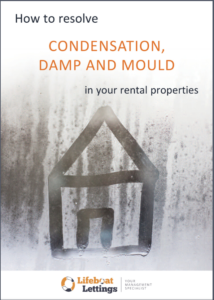
A popular investment strategy currently – and a likely one going forwards – is to buy a property with ‘tenants in situ’. We have all seen these properties listed on Rightmove. Typically, the property does not sell as quickly as one that has vacant possession. This is because there is a much smaller group of buyers that are prepared to acquire it, and this is – Investors. The attraction is obvious: a ready-made income stream, easy to value from an investment perspective (for buyers and lenders alike) and apparently ‘less work’ for the investor/landlord to do from day one – such as finding tenants. This is particularly true for HMOs, where the prospect of a landlord having to find a whole house full of tenants from day one can be daunting. But there is a caveat: buyer beware. There is also a downside to not picking your own tenants!
As a lettings agency specialising in HMOs, Lifeboat Lettings almost exclusively takes on the management of properties with at least some tenants already installed (with a few exceptions of course). Often, landlords will bring a property to us where they are already struggling with one or more tenant-related issues. One recent example that Lifeboat Lettings has had to deal with was concerning an individual disruptive tenant amongst a group of tenants with an otherwise good dynamic. Ultimately, this tenant had to be given notice and there was a large amount of work for the agency dealing with this issue and managing the property and other tenancies through the problem. The outcome was ultimately positive for the landlord.

When taking on an HMO property with tenants already in situ – whether there are obvious issues already or not – it is important to follow a few ground rules. Firstly, communicate with all the tenants early on; laying down the house rules as well as giving basic contact information, making sure notice boards are installed and furnished with the right notices. Keep communications factual, have a listening ear but be wary of getting drawn in to ‘disputes’ between tenants: stay neutral. Make sure a property manager – or other point of contact – is available at reasonable hours and there is an out of hours reporting system in place. Keep a written record of all communications, preferably using a reputable property management system. Finally, it is important to continue to attend to maintenance and other reported issues in a timely fashion and resist the temptation to withhold these services until harmony is restored. IF all else fails and things are getting too difficult to manage, then you can always resort to approaching an expert lettings management company to assist.




